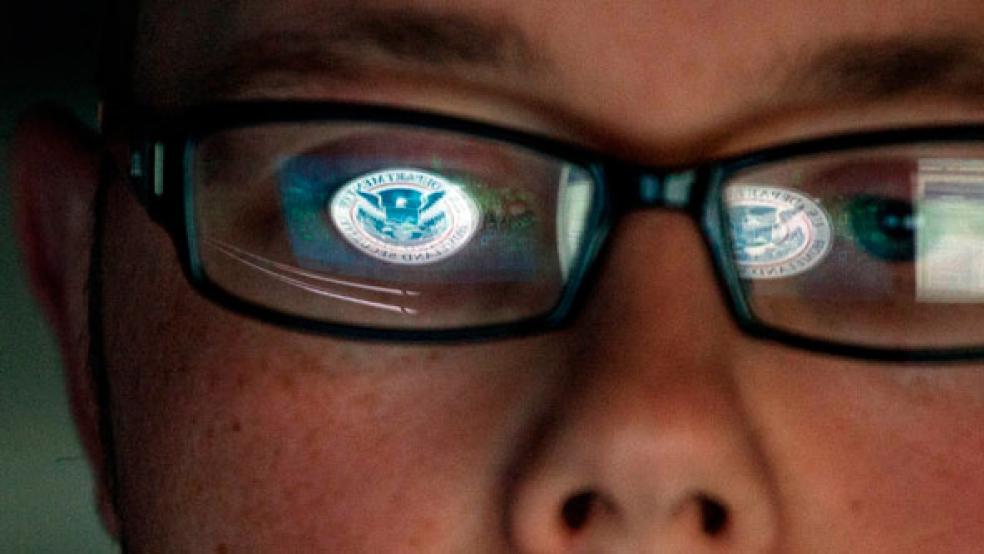The Department of Justice indicted five Chinese hackers last week for being part of an elite Chinese hacking unit that allegedly hacked the computers of major American companies to steal their corporate secrets.
The White House “will not tolerate actions by any nation that seeks to illegally sabotage American companies and undermine the integrity of fair competition in the operation of the free market,” Attorney General Eric H. Holder Jr. said in announcing the indictments.
Related: U.S. Plays Catch-Up with China on Cyber Warfare
The indictments, however, aren’t likely to go very far – former U.S. Ambassador to China Jon Huntsman called them “symbolic.” But the action does provide a rare peek into the increasingly intense cyber war between China and the United States. And while it reveals the complex hacking culture that exists in China, it also shows that all of those trying to crack codes share two similar traits: They’re all in their 20s or 30s, and their training began when they were young.
This gives China a distinct advantage over the U.S. Most Chinese hackers begin their training well before U.S. cyber warriors do. They’re taught from a young age how to break into the Department of Defense’s networks, as well as the networks of American companies.
To catch up in this ongoing war behind the keyboards, the American military apparatus is in the midst of overhauling how it trains cyber warriors in this country. Beginning at the high school level in both military academies and in public schools, potential “soldiers” are being taught the intricacies of computer espionage in the 21st century.
Related: Armies of Nerds Could Fight the Next Electronic War
It remains to be seen whether this effort is too little and too late: China has been training its hackers for decades. But the U.S. effort, coordinated by the Pentagon, does represent a concerted attempt to even the playing field between Beijing and Washington.
Starting Young
In Huntsville, Alabama, Colonel Casey Wardynski (ret.), who served for 16 years as the Army’s top economist and is now the superintendent of the Huntsville city schools, has worked with the Army’s Cyber Command to change the school curriculum to introduce cyber war techniques. West Point is providing the curriculum, along with mentors for the students.
Huntsville is the first city to institute such a program. With help from the Pentagon, it’s also the largest all-digital school district in the country: All 24,000 of its students have a personal computing device that gives them access to the DOD curriculum.
As for the private military academies, schools like the Sarasota Military Academy in Florida, the Marine Military Academy in Texas, and the Fork Union Military Academy in Virginia, among others, have clubs and classes dedicated to cyber warfare techniques.
Related: U.S. and China in a Lethal Game of Cyber Chess
To foster competition among the private military academies and traditional high schools, the Air Force, in cooperation with Northrup Grumman, created CyberPatriot, a cyber contest designed to teach students cyber techniques while encouraging future careers in the military. “Keeping the world secure goes beyond the battlefield,” says Northrup.
“As a CyberPatriot, you are part of the next generation of cyber defenders critical to our nation’s future security,” it also says in a recruiting flyer for the competition. “With a career in cyber security at Northrop Grumman, you can be a part of our team in developing systems and solutions that push the envelope across the entire continuum of cyber defense."
Then There Are the Critics
These programs are not without their critics, however. Some people have charged that creating cyber war competitions turns the training into a game and avoids teaching students about real-world consequences in the cyber world.
“This interweaving of military technology, ideology and money poses a potential risk to students everywhere and should be critically examined by parents and educators alike,” Corey Mead, a professor of English at Baruch College and a researcher on military and video games, wrote in a critique of the programs. “A military career is not a game… The stealth recruitment and militarization of young minds is not a game, and it should not be treated as such by school officials in charge of guiding our children’s future.”
Top Reads from The Fiscal Times:
- House Republicans Propose Controversial Tax Vote
- Russia Can Lose Territory, Too. It Should Worry
- Russia’s Military Bear Is a Paper Tiger





